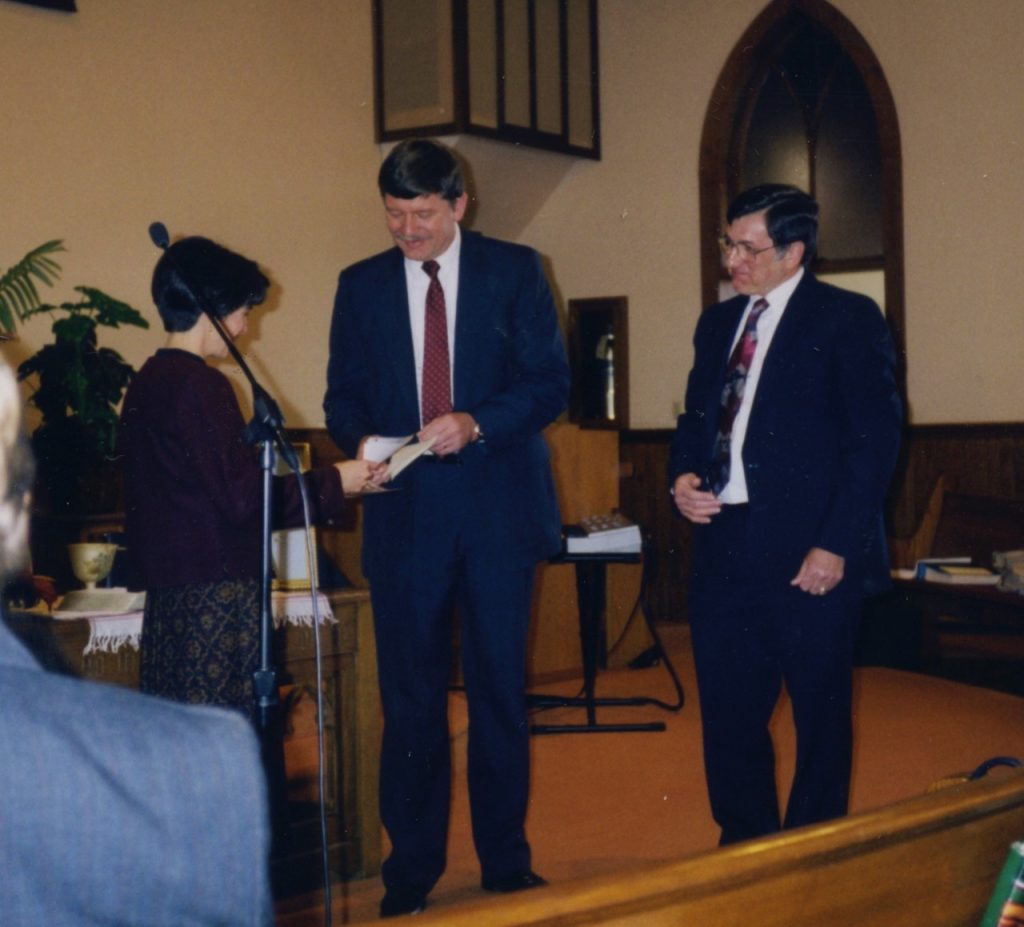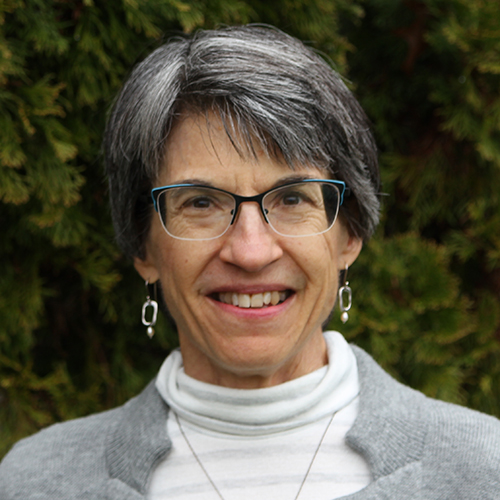by Mary Nitzsche
When I was in the ordination process, I was serving as a Leadership Minister for Ohio Conference of Mennonite Church USA. Since I was not pastoring a congregation, the pastors I accompanied were asked to evaluate my readiness for ordination. One pastor, whom I will call Sam, struggled with whether he could support my ordination given his theological interpretation of scripture. Sam took this matter so seriously that he re-read the scriptures about the role of women in leadership, discussed his perspective with trusted colleagues, and prayed about this decision. In his prayerful discernment, he came to his prior conclusion that women should not be ordained.
Sam communicated his position in a lengthy written document sent certified mail to me and multiple conference leaders. The letter ended with his conviction that he would not stand in the way of the conference decision. There were no threats to leave the conference or denomination if there was support for my ordination. There were no threats he would no longer accept my leadership role in accompanying him in ministry.

My ordination was supported by the other pastors, conference leadership, and the Ministerial Committee of Ohio Conference and Central District Conference. With his congregational responsibilities, Sam was not able to attend my ordination on November 16, 1997, 26 years ago.
Because I was unsure of how my ordination would impact our relationship, it took six months after my ordination to have the courage to call Sam. I asked if I could visit his congregation and get to know them. The first thing out of Sam’s mouth was, “Would you be willing to preach?”
I was shocked and I hesitated to respond. How could he invite me to preach in his congregation while not endorsing the ordination of women, I wondered. Without needing to understand his reasoning, I accepted the invitation with humility and tears of joy. I had experienced God’s grace like never before.
From this gracious brother, I learned the importance and priority of relationship over belief. I learned the importance of prayerful discernment on matters of belief with an openness to new interpretations. I learned that two people can take scripture seriously, study it carefully, follow Jesus faithfully, and interpret the same scripture differently. I learned that when there is disagreement, there can be mutual respect rather than judgment, and a willingness to remain in fellowship rather than separate. While I understand there are times when separation may be best for a relationship or faith community, I do not believe this should be the norm.
Before his impending death on the cross, Jesus’ prayed three times for his current and future disciples, “that they will all be one–as you are in me, Father, and I am in you. And may they be in us so that the world will believe you sent me. As you, Father, are in me and I am in you, may they also be in us, so that the world may believe that you have sent me.” (John 17:21 NLT). Jesus’ disciples had different personalities and different understandings of Jesus and his mission, and as such, the oneness to which Jesus was calling them did not mean sameness.
Jesus’ invitation was to remain in relationship even when perspectives are different. In a polarized world in Jesus’ time and now, oneness is a sign of faithfully following the teaching and practices of Jesus. I learned this 26 years ago from my gracious brother in Christ, and I hope my life has demonstrated Jesus’ prayer over these many years of ministry.

Mary Nitzsche
Mary Nitzsche is a Leadership Minister for Mosaic Conference. She and her husband, Wayne, are Midwest natives. They have two adult daughters, Alison and Megan, son-in-laws, Michael and David, and two grandchildren.
The opinions expressed in articles posted on Mosaic’s website are those of the author and may not reflect the official policy of Mosaic Conference. Mosaic is a large conference, crossing ethnicities, geographies, generations, theologies, and politics. Each person can only speak for themselves; no one can represent “the conference.” May God give us the grace to hear what the Spirit is speaking to us through people with whom we disagree and the humility and courage to love one another even when those disagreements can’t be bridged.
